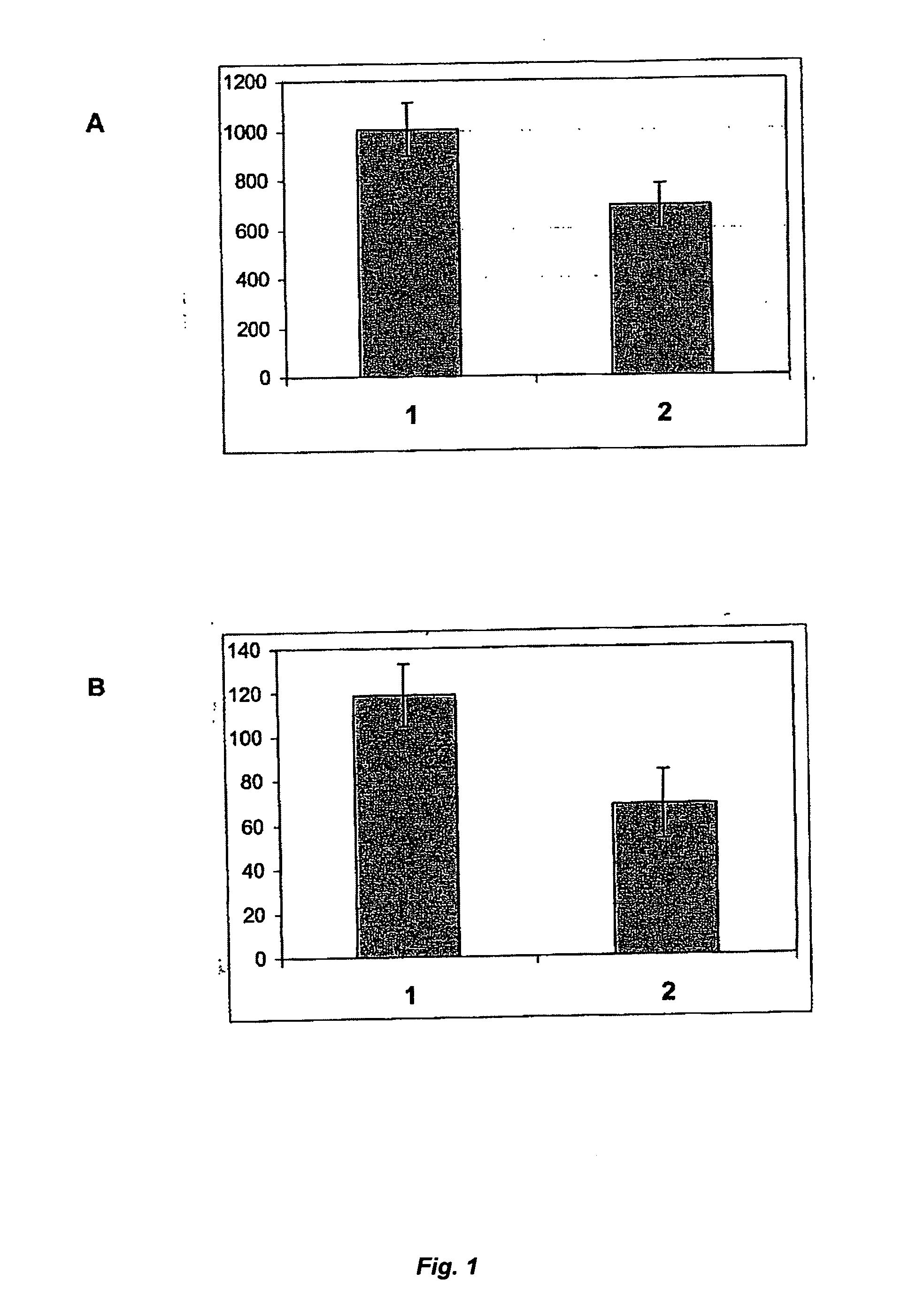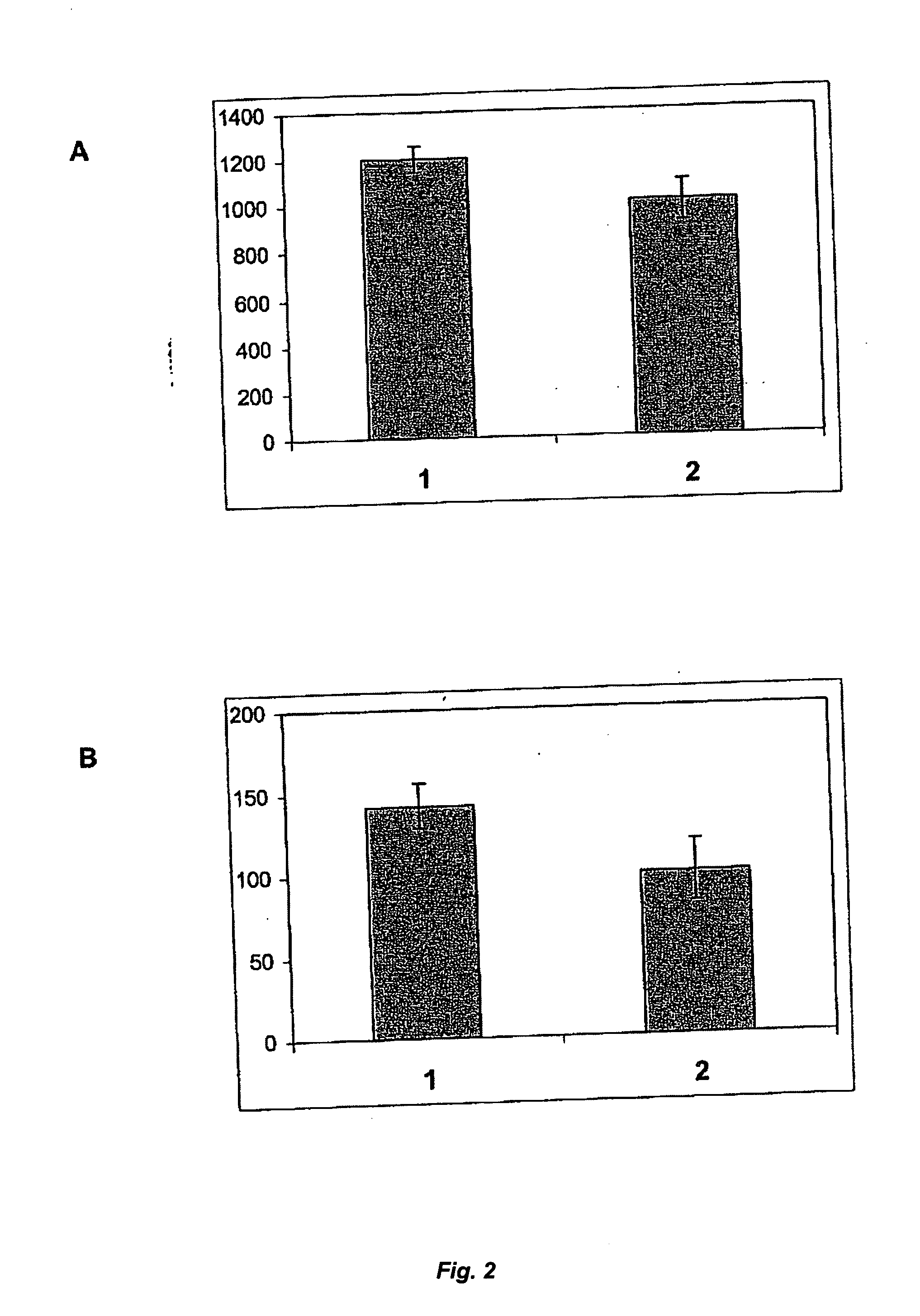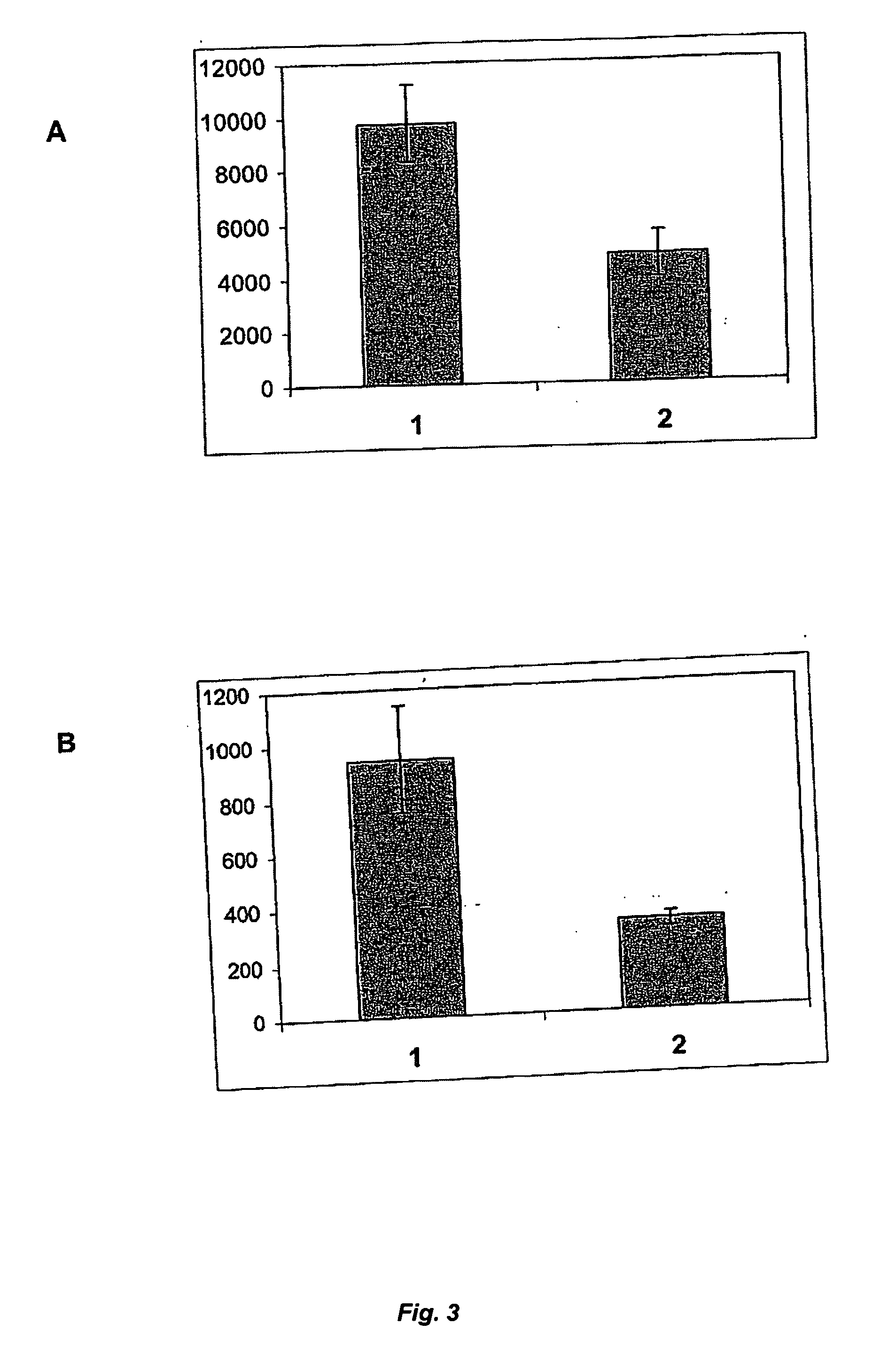Recombinant co-expression of vitamin K epoxide reductase subunit 1 to improve vitamin K dependent protein expression
a technology reductase, which is applied in the field of host organisms, can solve the problems of limited expression of functional factor ix in chinese hamster ovary cells, and low expression of factor ix by adding vitamin k to the medium, and achieve the effect of improving the productivity of recombinant vkd protein expression
- Summary
- Abstract
- Description
- Claims
- Application Information
AI Technical Summary
Benefits of technology
Problems solved by technology
Method used
Image
Examples
example 1
Transient Transfection and Co-Expression of rVKORC1 in rFIX-Producing HEK293- and CHO-Derived Cell Lines
[0063] The expression of recombinant factor IX (rFIX) is achieved by introducing expression plasmids containing the human factor IX (FIX) encoding DNA sequence under the control of a strong viral promoter into mammalian host cell lines by an appropriate transfection method resulting in cells having the introduced sequences stably integrated into their genomes. The plasmids also confer resistance to a selectable marker drug by delivering the adequate resistance gene(s). In the case of CHO cells, which are able to grow only in presence of nucleotide precursors in the medium because of an enzyme defect of the nucleotide de-novo synthesis pathway, the expression of this enzyme, dihydrofolate-reductase (DHFR), is required. This enables co-amplification of the FIX gene by gradually increasing the concentration of methotrexate (MTX), which leads to an increase of copy numbers of both g...
example 2
Transient Co-Expression of Recombinant Human VKORC1 in CHO- and HEK293-Derived Mammalian Cell Lines Stably Producing Recombinant Human Coagulation Factor VII (rFVII)
[0082] Any influence of rVKORC1 on the activity and / or secretion rate of rFVII can be studied by transient co-expression in human recombinant coagulation factor VII (rFVII) producing cells. Thus, a major part of the rFVII producing cell population also co-expresses VKORC1 for a short period of time. During this period, the secreted rFVII can be sampled, characterized and compared to the rFVII secreted by the same cell lines transfected in parallel with an empty vector control.
[0083] The stable expression of rFVII in mammalian cells can be achieved by transfecting plasmid vectors containing the human rFVII cDNA and selection resistance genes and subsequent producer clone selection. The same host cell lines as listed in Example 1 can be used for stable expression of rFVII. Genetic selection and gene amplification proced...
example 3
Stable Bicistronic Co-Expression of rVKORC1 and rFVII in CHO-Derived Cell Lines After Non-Viral Gene Transfection
[0105] To make use of any effect of rVKORC1 co-expression on γ-carboxylation within the scope of generating stable mammalian cell lines for rFVII production, a bicistronic expression system can be used. With such a system, the simultaneous expression of two proteins in eukaryotic cells after delivery of a single expression vector can be achieved. Moreover, the two proteins are translated from the same mRNA molecule simultaneously. This is enabled by introduction of a viral genetic element termed internal ribosome entry sequence (IRES) between the cDNAs encoding the two transgenes into the expression vector construct (Mountford and Smith (1995) 11, 179-184). After transcription of the mRNA from the DNA vector construct, which has been integrated stably into the host cell chromosome, two ribosomes can bind to the processed mRNA leading to simultaneous elongation of both p...
PUM
 Login to View More
Login to View More Abstract
Description
Claims
Application Information
 Login to View More
Login to View More - R&D
- Intellectual Property
- Life Sciences
- Materials
- Tech Scout
- Unparalleled Data Quality
- Higher Quality Content
- 60% Fewer Hallucinations
Browse by: Latest US Patents, China's latest patents, Technical Efficacy Thesaurus, Application Domain, Technology Topic, Popular Technical Reports.
© 2025 PatSnap. All rights reserved.Legal|Privacy policy|Modern Slavery Act Transparency Statement|Sitemap|About US| Contact US: help@patsnap.com



